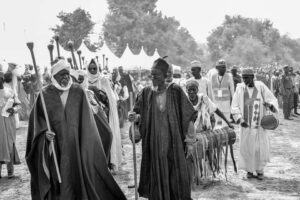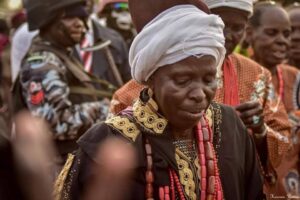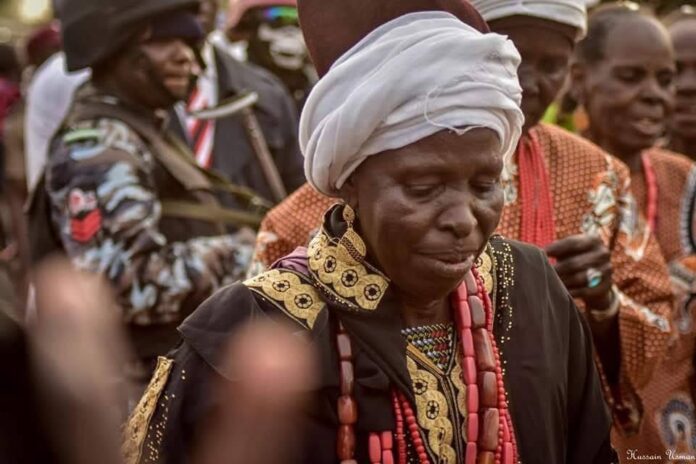Exploring the Resilient Traditions and Rich Heritage of the Bade People (pictures)
The Bade tribe is an indigenous ethnic group predominantly found in Nigeria’s Yobe and Jigawa States. The Bade people are known for their resilient heritage, colourful traditions, and a language that is still a cornerstone of their identity. Their community’s journey is a testament to adaptability and deep-rooted cultural pride.
History and Origin
The origin of the Bade people can be traced through both oral traditions and historical research. According to these sources, the Bade migrated from the East, specifically from an area near modern-day Saudi Arabia and Yemen. Over centuries, their journey took them across the Lake Chad region before finally settling in what is now Yobe State by around 1300 AD.
Upon settling, the Bade tribe split into several clans, each led by descendants of the original patriarch.
READ ALSO: Guardians of Heritage, Champions of Progress: Meet the traditional Emirs shaping Yobe’s future
External pressures, such as conflicts with neighbouring groups, forced the unification of their clans. This led to the creation of a confederation which fostered mutual defence and political cohesion. Today, their leadership is embodied by the Bade Emirate, headquartered in the town of Gashua, with the Emir serving as both a cultural and religious figure.
Language and Cultural Identity
The Bade language is classified as West Chadic and remains a key aspect of their cultural identity. The language is divided into several dialects, most notably Western Bade, Gashua Bade, and Southern Bade. Over recent decades, however, the number of Bade speakers has decreased as many people adopt Hausa, reflecting broader social and economic changes. Scholars and local leaders frequently raise concerns that Bade is now considered a “vulnerable” language at risk of disappearing, which would mean the loss of centuries of history and tradition preserved in their unique dialects.
Despite these pressures, Bade culture remains robust. The people are deeply spiritual, blending Islamic faith with older, traditional beliefs. For example, charms and amulets are widely used for protection, fertility, and good fortune, demonstrating a lively connection to their past and the natural world.
Economy and Livelihood
Traditionally, the Bade people are farmers, with agriculture forming the backbone of their economy. Millet is their main staple crop, supplemented by sorghum, corn, and peanuts. They also raise livestock, such as sheep, goats, and horses, a practice that holds both economic and social value.
READ ALSO: The Kilba/Hoba People of Adamawa: Custodians of remarkable culture, history (pictures)
During the rainy season, the majority of the community is engaged in farming, while the dry season sees a shift towards fishing and other activities made possible by the fertile river environments.
The integration of farming, livestock breeding, and fishing helps ensure food security and a stable local economy. Eminent towns like Gashua act as important centres for trade, education, and administration, where people from different backgrounds come together to exchange goods and ideas.
Bade Fishing Festival
The Mauyi-Ganga Fishing Festival is a hallmark of Bade cultural life. Held each year in Gogaram, a town along the Mauyi-Gaga river, this festival began as a local fishing event and has grown into a significant cultural and tourism attraction, drawing participants and spectators from all over Nigeria.
The festival is steeped in ritual. It opens with special ceremonies led by the ‘Sarkin Ruwa’ (“king of the river”) and his aides, who perform traditional rites to honour the river’s spirits and ensure a bountiful catch. In the past, the festival involved dramatic displays of hunting skills, including attempts to hunt hippopotamus; a testament to the community’s intimate relationship with their environment.
READ ALSO: The Jukun Tribe: Into the enduring traditions of the mighty Kwararafa Kingdom (Pictures)
Modernisation
Today, while some of those older practices have faded, the festival remains a powerful source of unity and communal pride. It offers entertainment, promotes cultural heritage, provides economic opportunities, and strengthens social bonds within the diverse Bade community.
Nevertheless, the Bade people exemplify the ability to honour ancient traditions while adapting to changing times. Their story, from ancient eastward migrations and clan alliances to ongoing language preservation efforts and vibrant festivals, demonstrates a rich heritage that continues to evolve without losing its core essence.
Despite external pressures and modernisation, the Bade people’s spirit, culture, and connection to their land thrive, showing how a community can survive and succeed at the intersection of history and culture.
See pictures below:






Follow the Neptune Prime channel on WhatsApp:
Do you have breaking news, interview request, opinion, suggestion, or want your event covered? Email us at neptuneprime2233@gmail.com





